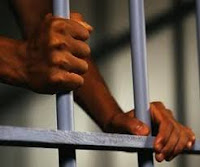U.S. Polls Favor Rehabilitation over Incarceration
by Matt Clarke - Prison Legal News
Building more prisons and jails ranked dead last on the list of quality of life priorities, behind providing more jobs and job training, building and improving roads and infrastructure, strengthening community-based mental health treatment, increasing community-based drug and alcohol treatment, creating parks and green space, investing in violence-reduction programs, reducing racism and bias, and investing in arts and culture.
For the ACLU poll, the Benenson Strategy Group interviewed over 1,000 adults across the country, 41 percent of whom described themselves as conservatives, 31 percent as liberals and 23 percent as moderates. Their level of agreement was significant, with 71 percent overall supporting a reduction in the prison population - 87 percent of Democrats, 67 percent of Independents and 57 percent of Republicans, including 52 percent of those who reported voting for President Donald Trump.
Almost all - 91 percent - agreed that the U.S. criminal justice system needs reform, and more than two-thirds said they would be more likely to vote for political candidates who favor reducing the prison population and spending the savings on drug treatment and mental health programming. Nearly as many - 72 percent - would prefer a candidate opposed to mandatory minimum sentences.
The poll also found support for reforming the money bail system, with two-thirds of respondents opposing pre-trial detention simply due to lack of funds to make bail. Perhaps most glaring was the finding that just 13 percent were aware that non-violent offenders account for 75 percent of jail populations.
According to Jasmine Heiss, director of outreach and public affairs strategist at the Vera Institute of Justice, local incarceration rates are strongly influenced by local actors such as judges and prosecutors. A judge who always gives out the maximum sentence or a prosecutor who always seeks the maximum penalties will increase a county's incarceration rate. Such over-incarceration is not linked to less crime; instead, the economic distress resulting from higher incarceration rates may drive up the community's crime rate.
In August 2016, the Alliance for Safety and Justice released the results of the first-ever survey of crime victims' perspectives on the U.S. criminal justice system. A majority wanted prosecutors to look for alternatives to incarceration to hold criminal defendants accountable.
Sixty-one percent preferred shorter sentences to spending on incarceration, while 38 percent believed incarceration actually increased recidivism. Eighty-nine percent of crime victims favored additional spending on schools and education over building more prisons and jails, 83 percent supported more spending on mental health treatment and 73 percent wanted increased drug treatment instead of incarceration.
The survey found that young and poor people were more likely to be victims of crime. The victimization rate for those between 18 and 24 was twice that of all other age groups, and the rate for those earning less than $15,000 a year was thrice that of those making at least $75,000. Over a third of violent crime victims had previously been a victim of violent crime. Two-thirds of the victims surveyed received no help after the crime; most who received help got it from family and friends.
"The data is clear - when it comes to criminal justice, Americans want reform and rehabilitation," concluded Udi Ofer, who serves as deputy national political director and director of the Campaign for Smart Justice at the ACLU.
Now we just need elected officials to listen to the people who support criminal justice reforms.
Sources: www.citylab.com, www.gqrr.com, www.shadowproof.com, www.crimereport.org, www.aclu.org, www.vera.org

No comments:
Post a Comment